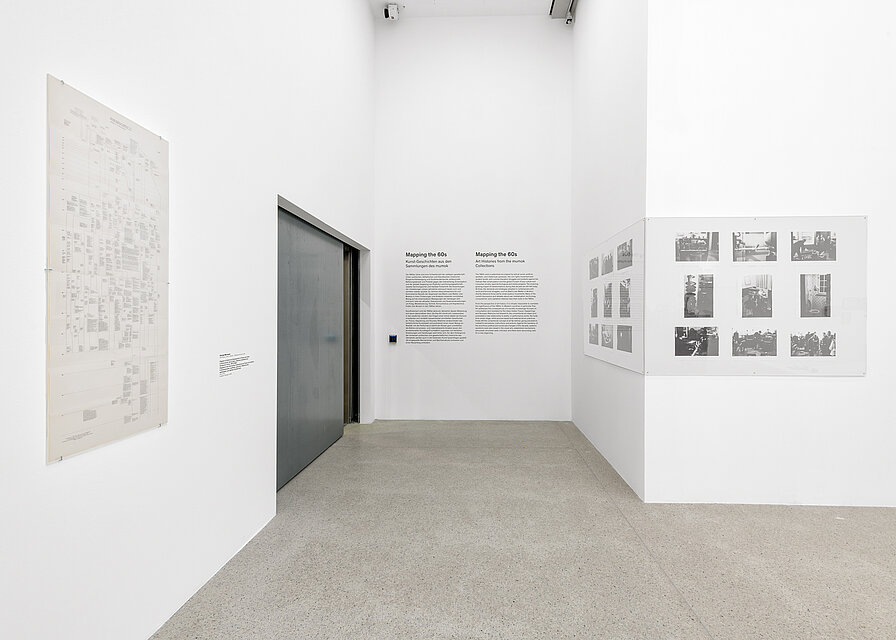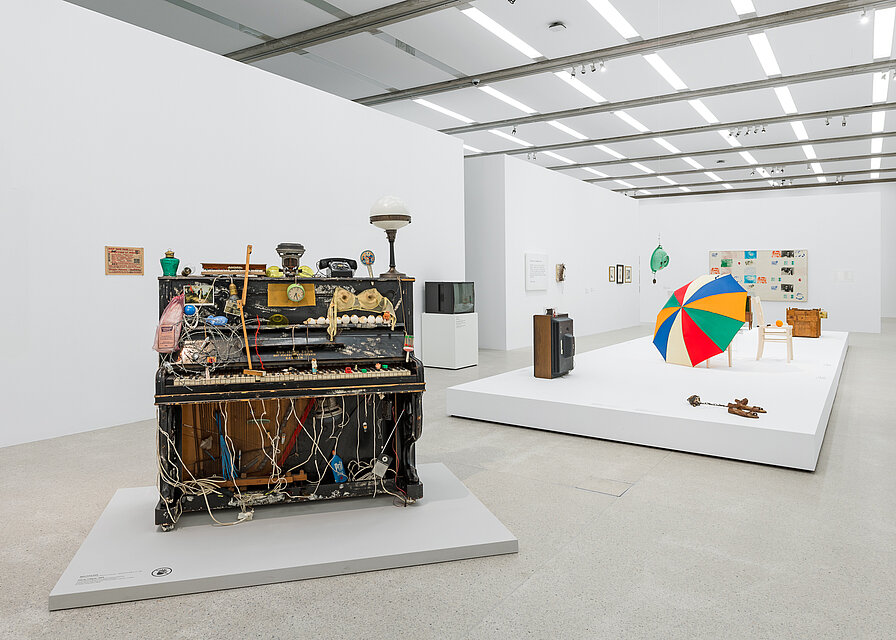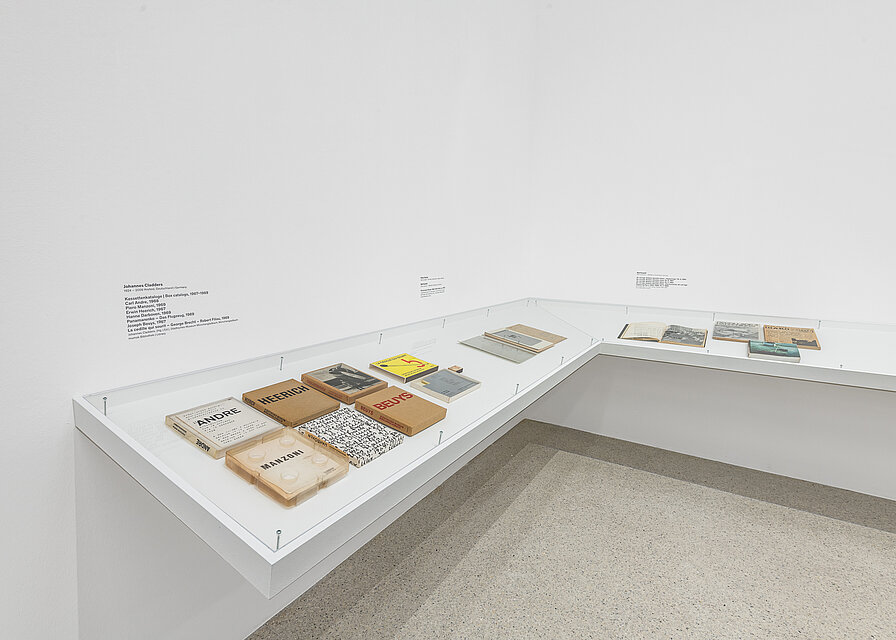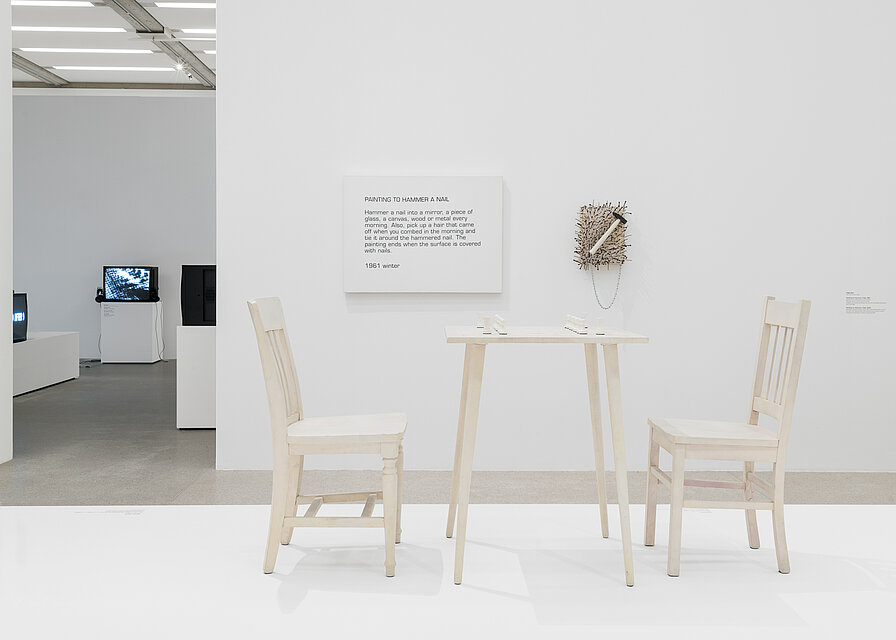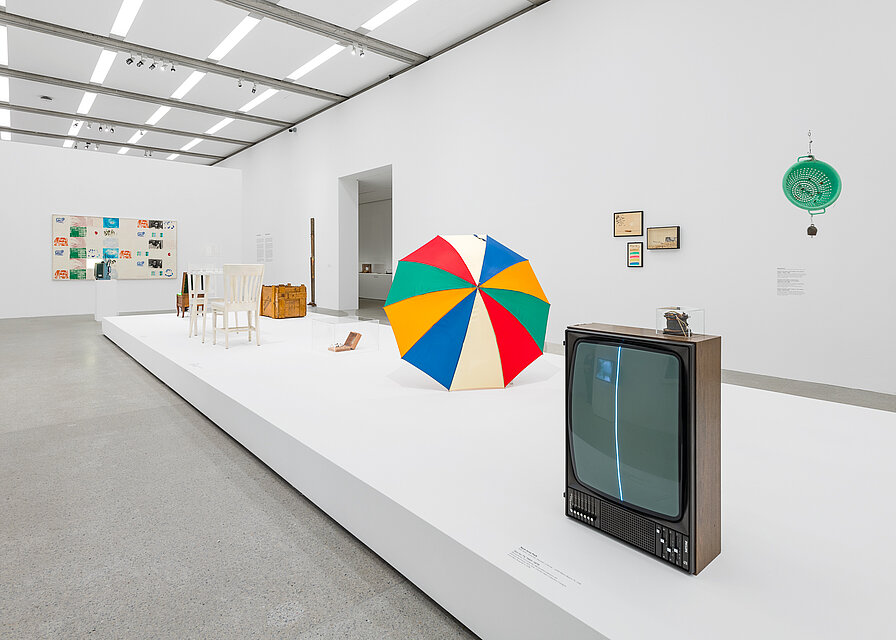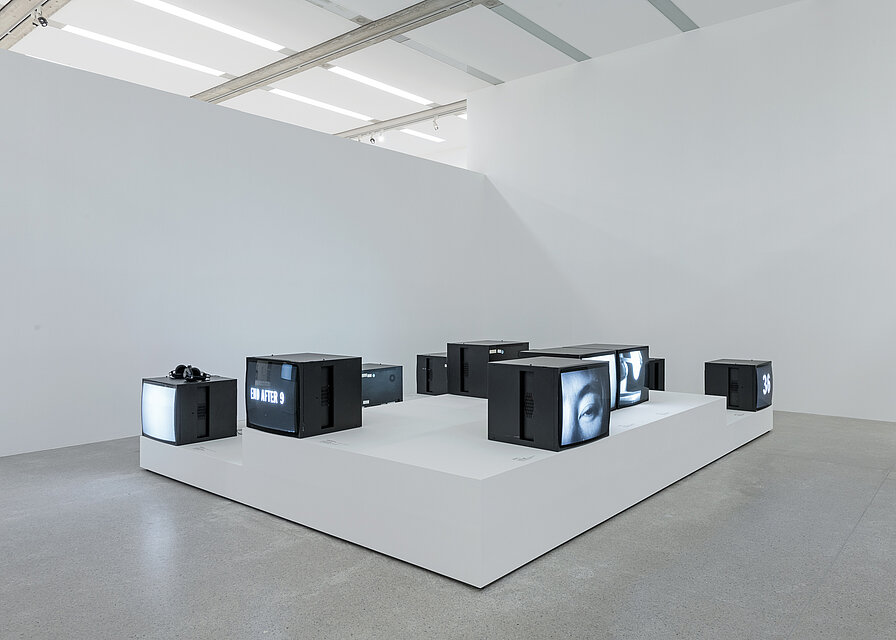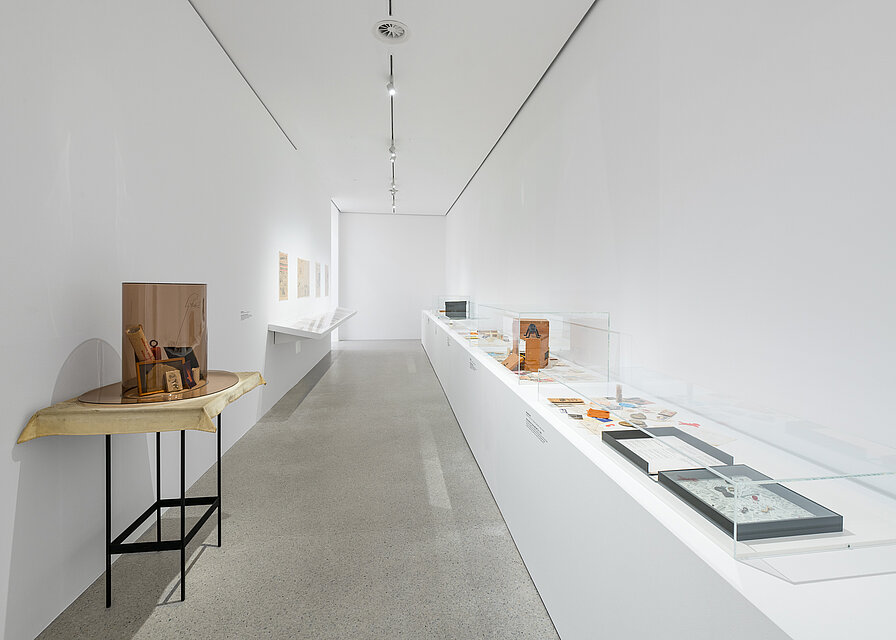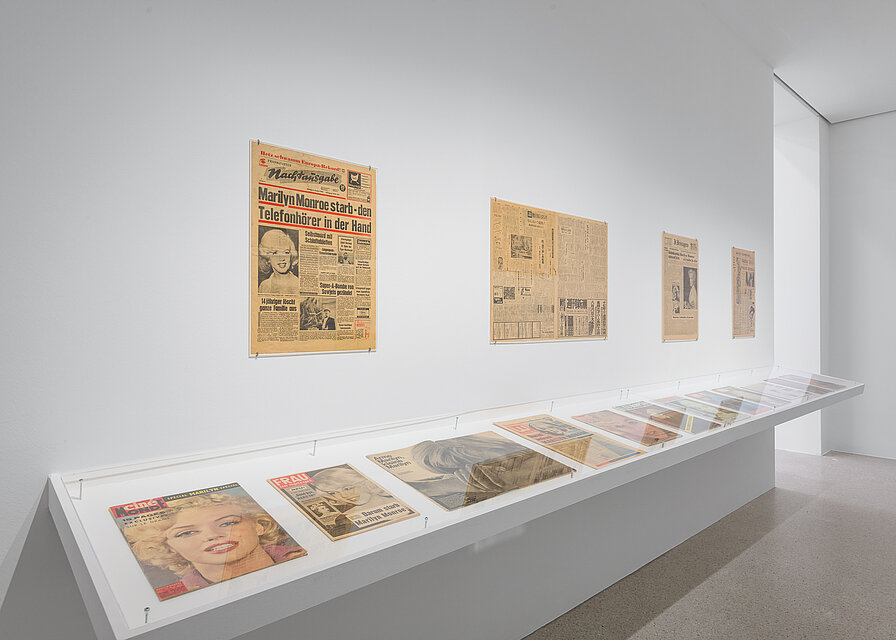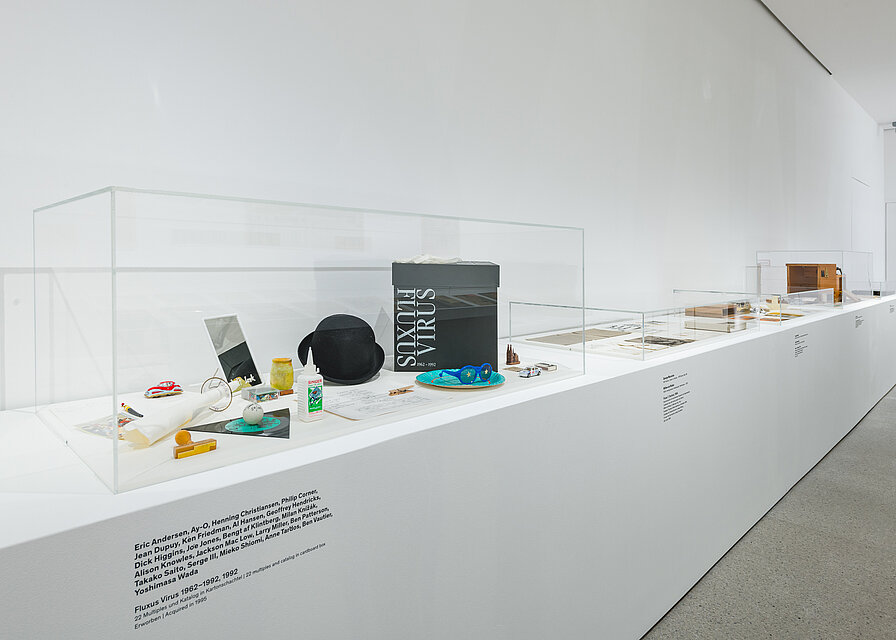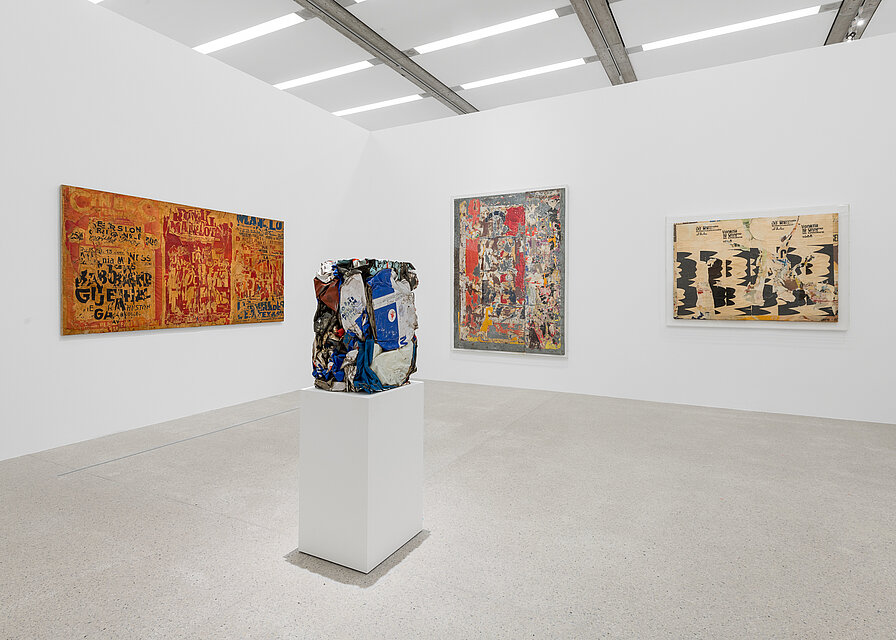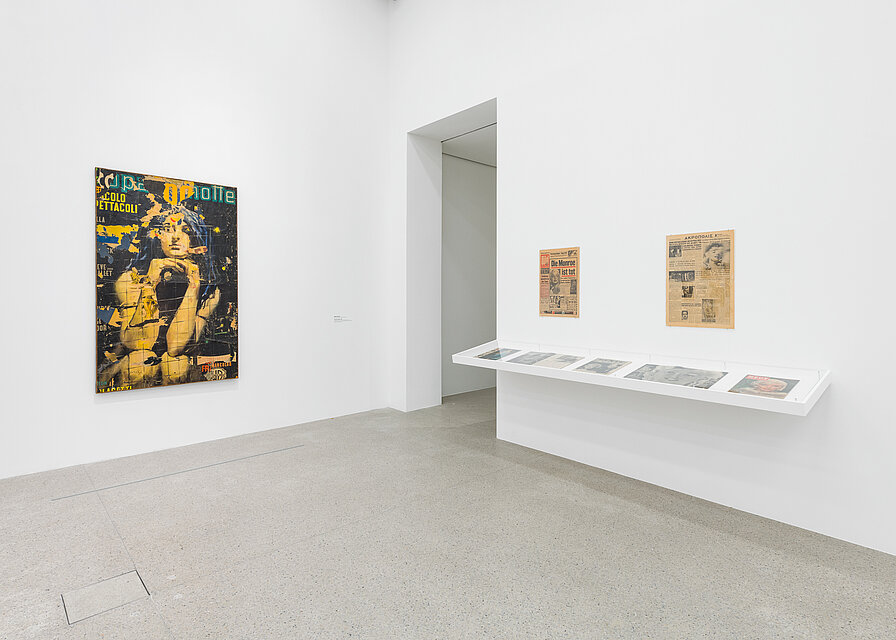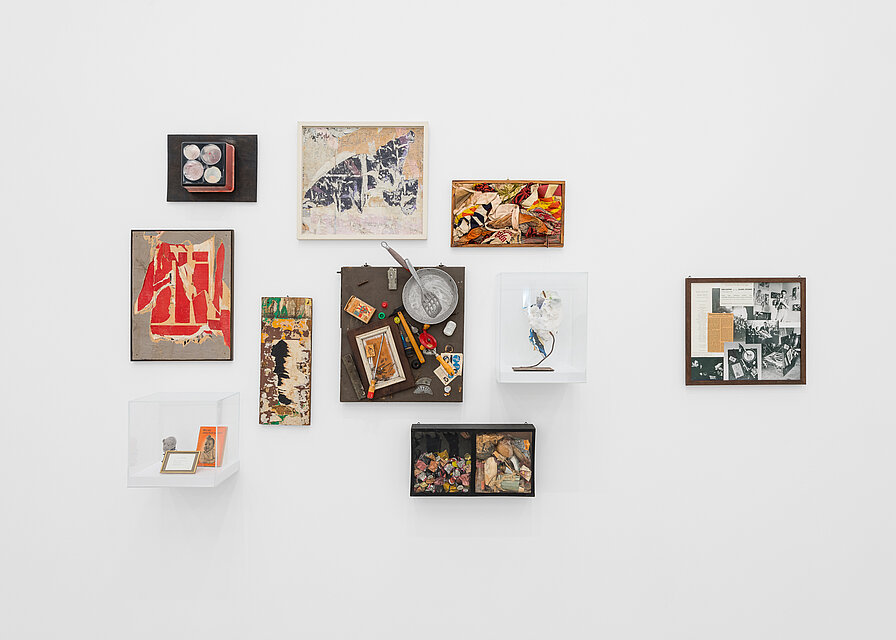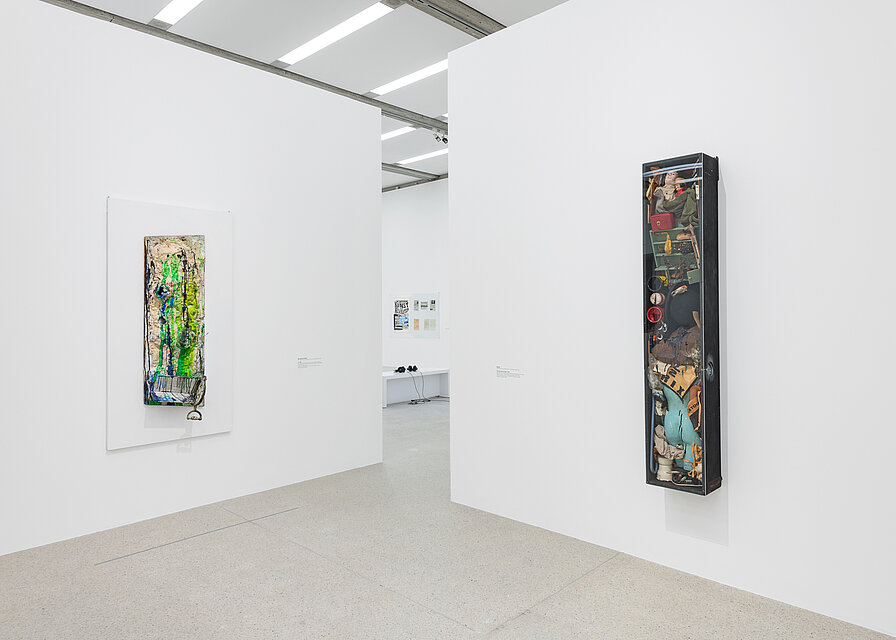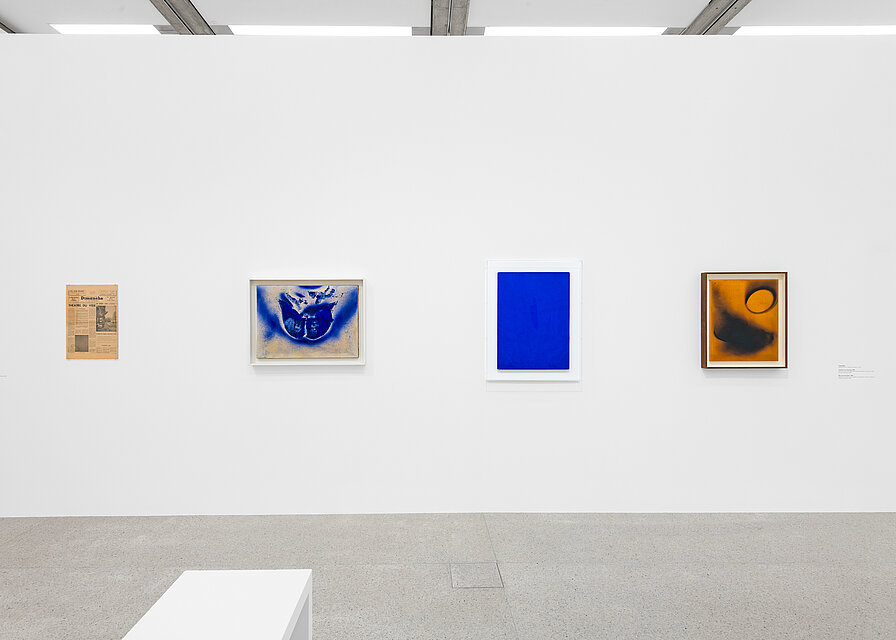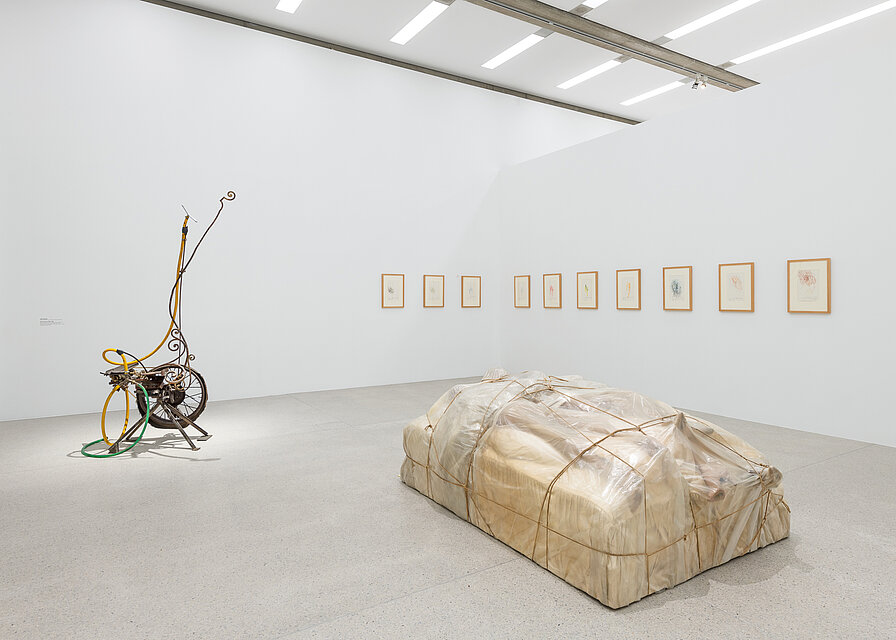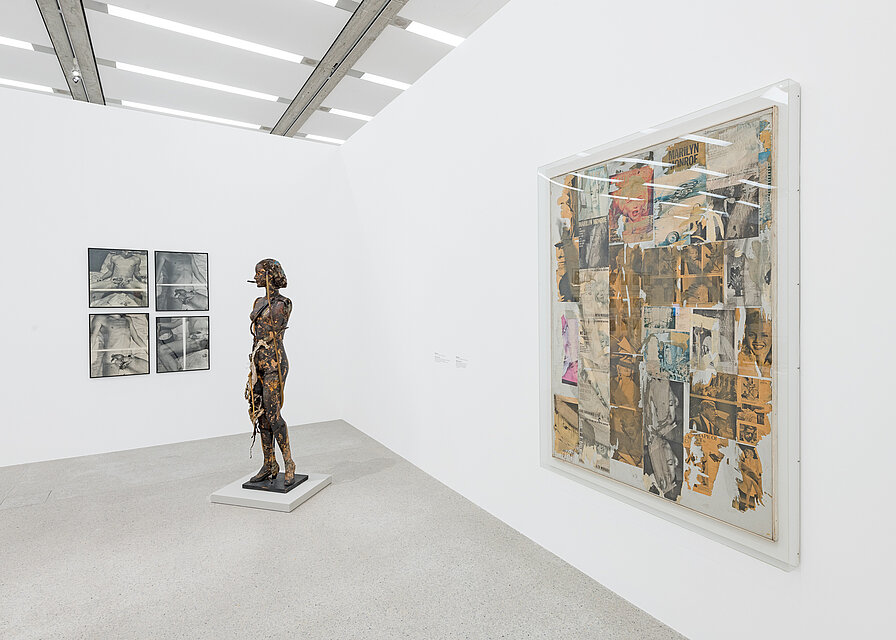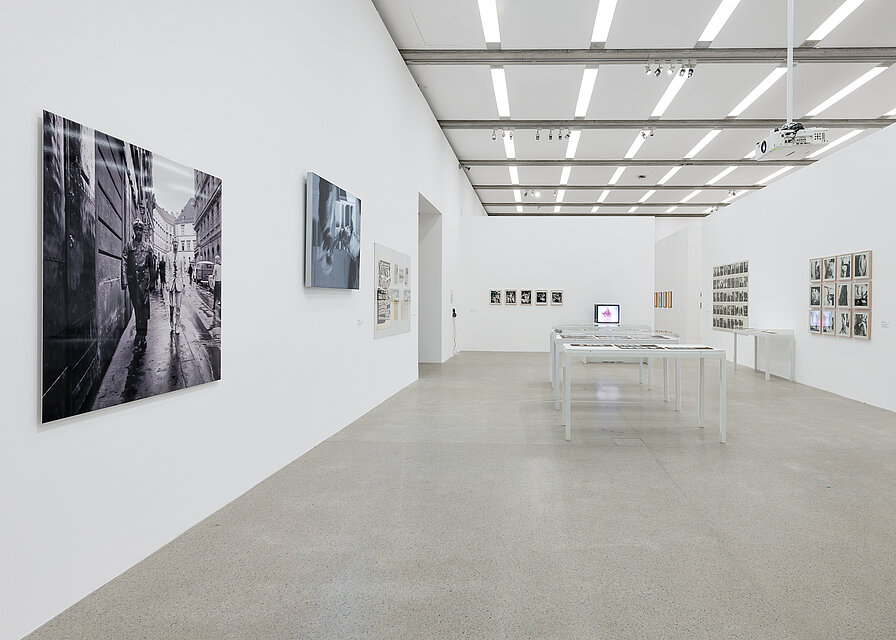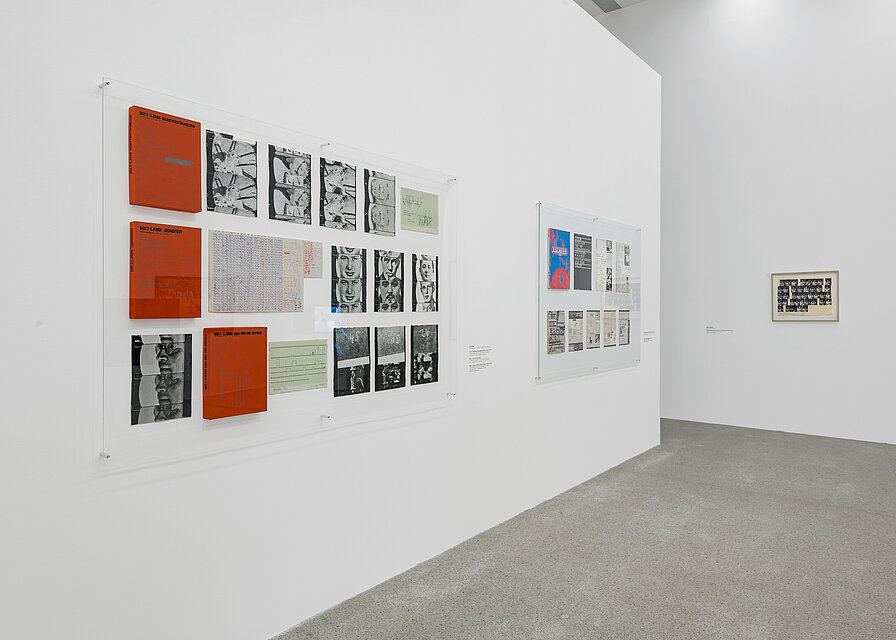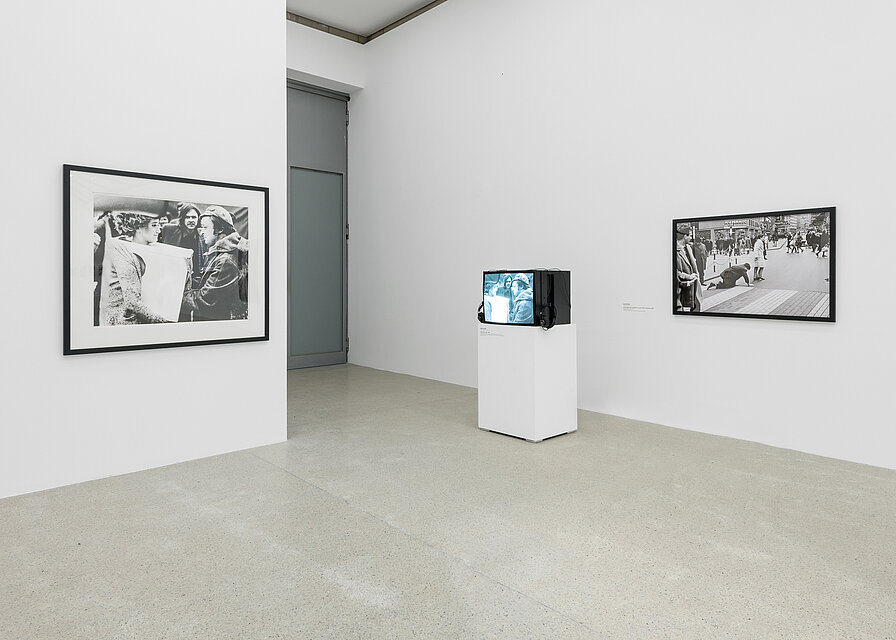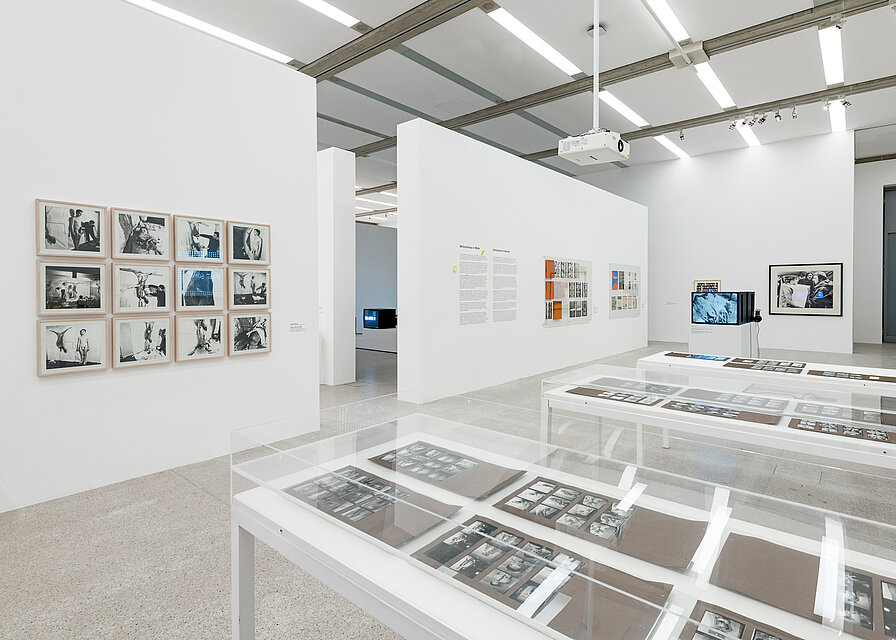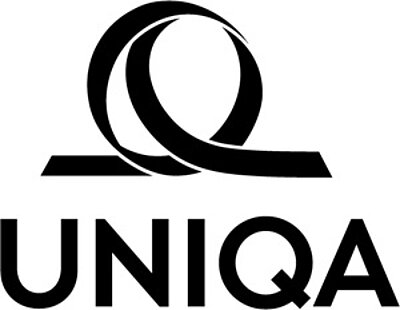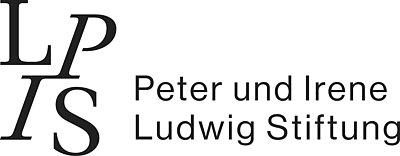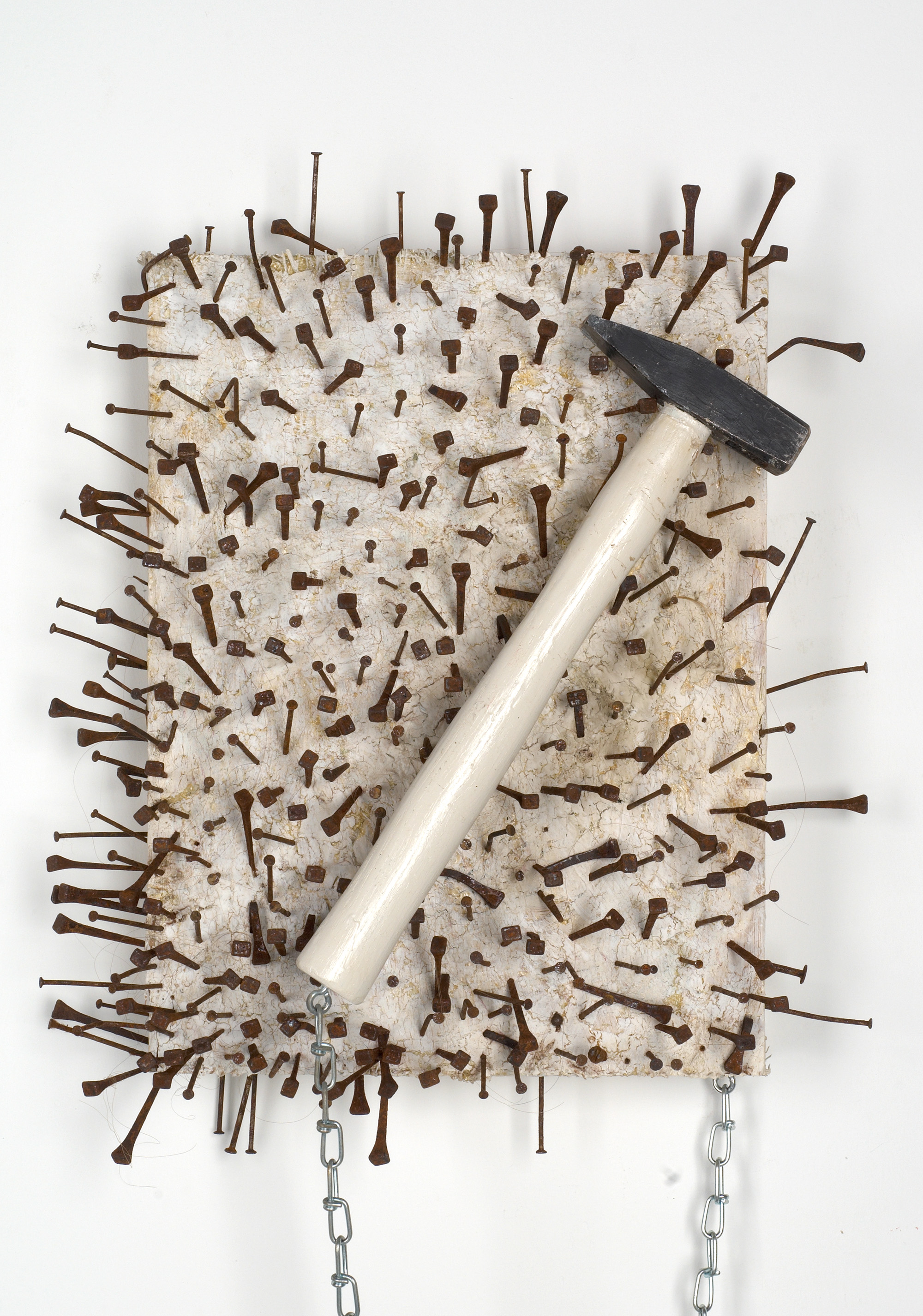
Exhibition |
December 5, 2024 to April 19, 2026
MAPPING THE 60s
Art Histories from the mumok Collections
Focus #2
Mapping the 60s – Focus 2
Curated by Manuela Ammer, Marianne Dobner, Heike Eipeldauer, Naoko Kaltschmidt, Matthias Michalka, Franz Thalmair
Fluxus, Nouveau Réalisme, Happenings, and Actionisms
The 1960s marked a pivotal era of radical social, political, aesthetic, and theoretical transformation. Civil rights movements and student protests, anti-colonial liberation struggles, the rise of feminist activism, and the triumphs of pop culture and consumer society all continue to resonate today. Contemporary movements such as Black Lives Matter and #MeToo draw on the emancipatory efforts of that time, while current debates around war, media, technology, consumerism, and capitalism are deeply rooted in the 1960s.
mumok – Museum moderner Kunst Stiftung Ludwig Wien opened in 1962 as the Museum of the 20th Century, which was then Austria’s first and only museum dedicated exclusively to contemporary art. Acquisitions from this period, along with the Peter and Irene Ludwig Collection and the Wolfgang Hahn Collection, form the foundation of the museum’s holdings.
Mapping the 60s exhibits works from the museum’s permanent collection, tracing the diverse ruptures and shifts of this transformative decade. In the spirit of “mapping,” a form of charting and surveying, the works on display are contextualized within their historical frameworks. Like a magnifying glass, the exhibition casts selective spotlights on key historical junctures and artistic currents. After first focusing on Pop Art, conceptual modes of expression, major international exhibitions, and publications from July 5, 2024, to September 7, 2025, the second part of the exhibition turns to specific artistic movements: Fluxus, Nouveau Réalisme, Happenings, and Actionism in Vienna and beyond, which reject the conventional art object while proposing a new relationship to reality. With performance, the body enters the stage, and process- and material-based approaches challenge traditional notions of art. Against the backdrop of sweeping political and societal upheaval, visual art also begins to pose systemic questions that critique entrenched hierarchies and power structures and call for a fresh start — questions that remain strikingly relevant today.
Artists
Eric Andersen, Arman, Ay-O, George Brecht, Günter Brus, Mark Brusse, John Cale, John Cavanaugh, César, Henning Christiansen, Philip Corner, Christo, Gérard Deschamps, François Dufrêne, Jean Dupuy, Erró, VALIE EXPORT, Robert Filliou, Albert Fine, Ken Friedman, Al Hansen, Raymond Hains, Sohei Hashimoto, Wilhelm Hein, Geoffrey Hendricks, Dick Higgins, Ludwig Hoffenreich, Peter Jirak, Ray Johnson, Joe Jones, Allan Kaprow, Peter Kennedy, Khasaq, Yves Klein, Bengt af Klintberg, Milan Knížák, Alison Knowles, Július Koller, Kurt Kren, George Landow, Manfred Leve, George Maciunas, Jackson Mac Low, Larry Miller, Jonas Mekas, Peter Moore, Charlotte Moorman, Otto Muehl, Hermann Nitsch, Serge Oldenbourg, Yoko Ono, Malte Olschewski, Nam June Paik, Mike Parr, Ben Patterson, Jeff Perkins, Martial Raysse, Willem de Ridder, James Riddle, Mimmo Rotella, Dieter Roth, Niki de Saint Phalle, Takako Saito, Carolee Schneemann, Ernst Schmidt jr., Serge III, Paul Sharits, Mieko Shiomi, Berty Skuber, Daniel Spoerri, Herbert Stumpfl, Christof Šubik, Anne Tardos, Jean Tinguely, Pieter Vanderbeck, Jacques de la Villeglé, Wolf Vostell, Ben Vautier, Yoshimas Wada, Robert Watts, Peter Weibel, Oswald Wiener, Emmett Williams
© mumok – museum moderner kunst stiftung ludwig wien
